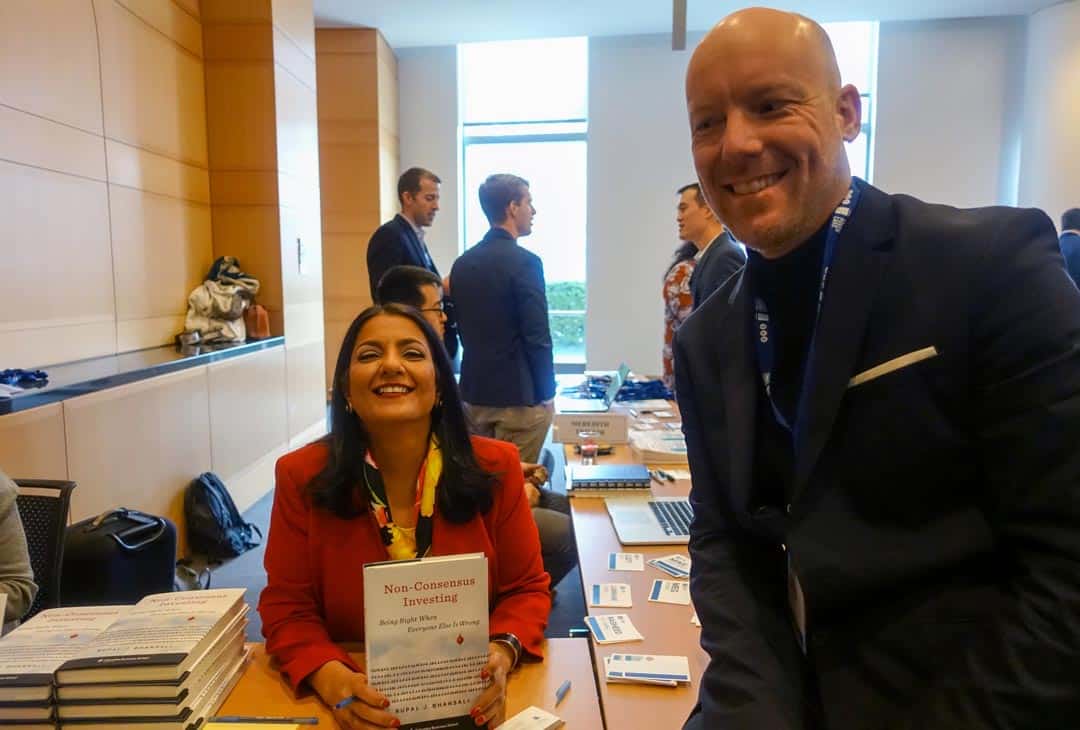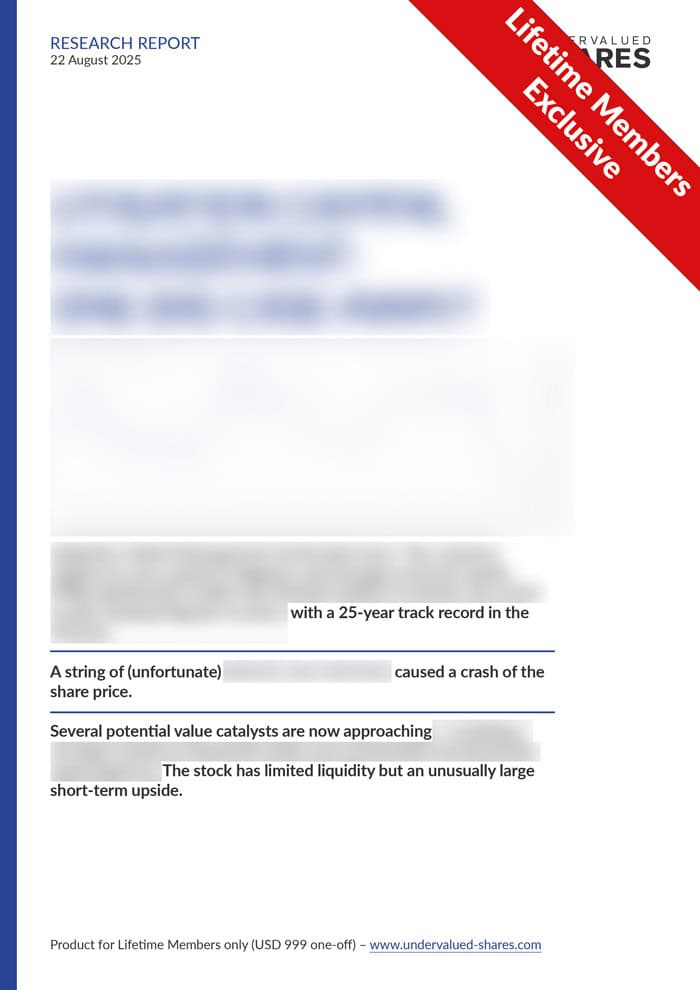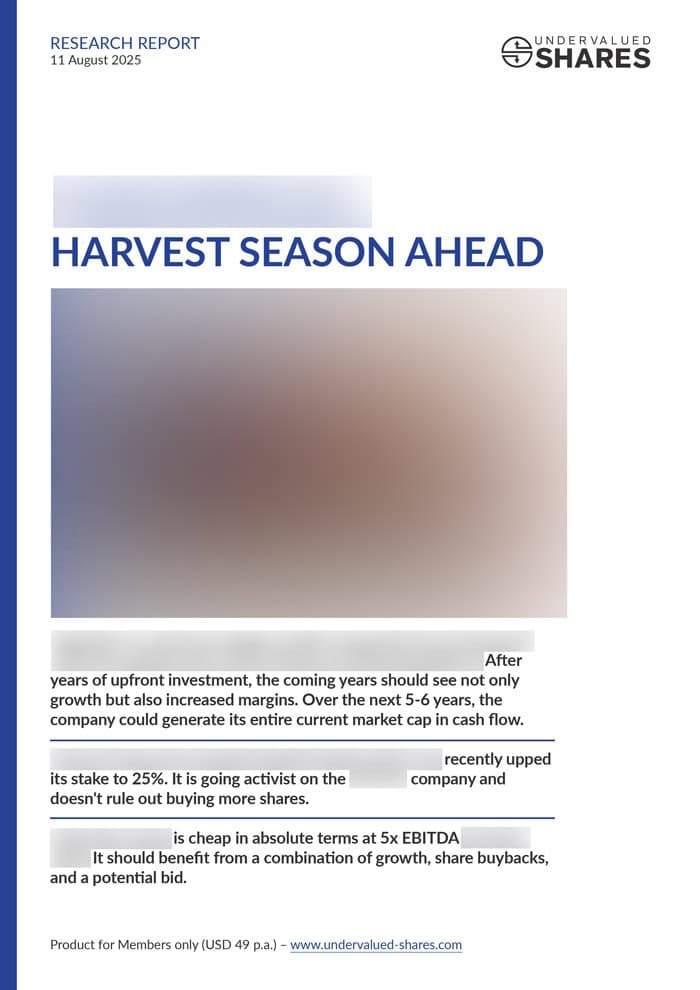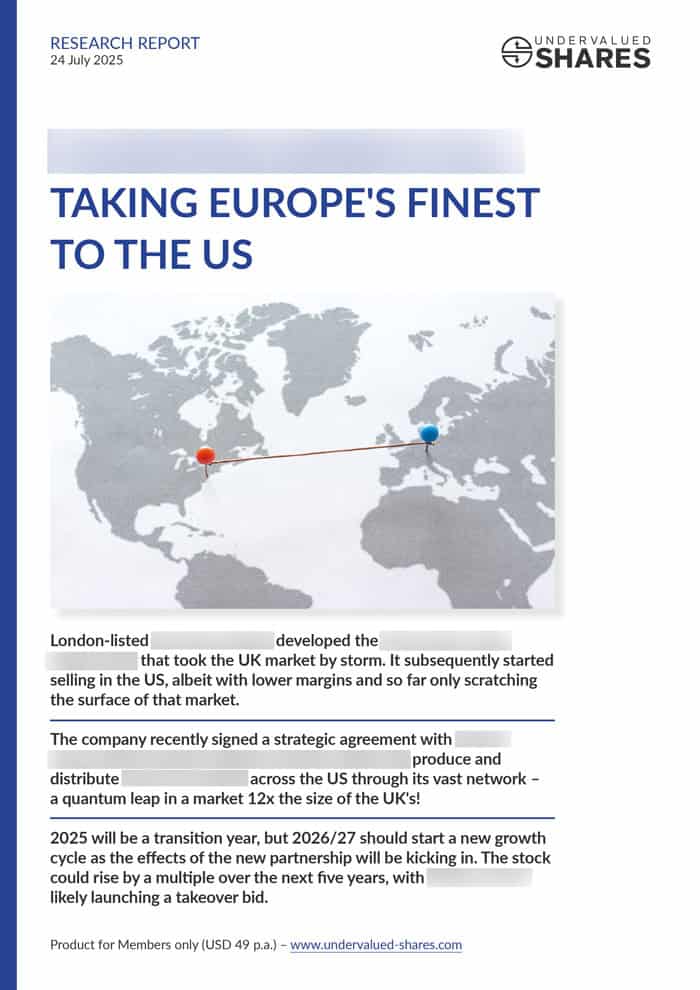Seaport Entertainment Group is a NYSE-listed play on the revival of New York’s southern tip. I visited the neighbourhood to evaluate the opportunity.
Non-consensus viewpoints – the guiding strategy for my 2020 research!
To succeed in investing, it's not enough to be right. You have to be right AND outside the consensus. This is a little-understood quirk of the stock market.
Imagine a group of one dozen analysts who follow a particular company. If they all expect earnings to increase next year, then the stock price will usually already reflect that. There is hardly ever a pay-off if you are right but merely within the existing consensus. The consensus will almost always be priced in already.
To significantly outperform the market, you will have to come up with a prediction that you are not only proven right on but which others do not yet believe in.
That's the thesis of Rupal Bhansali – and one which I support 100 percent. The fund manager from New York learned her trade working with George Soros and subsequently established herself as a "global contrarian" (Barron's), "global guru" (Forbes) and "unconventional thinker" (PBS). She authored the book "Non-consensus investing: Being right when everyone else is wrong" and now oversees USD 7bn on behalf of Ariel Investments. Rupal is the sort of investor we should all strive to learn from.
I had a chance to meet Rupal at the Punch Card Value Investing Conference in New York. She certainly had a few provocative theses and comparisons up her sleeve.
Real-life examples of non-consensus investing: BlackBerry, Apple and Michelin
To give examples of non-consensus investing and how it has worked out in the past, Rupal pulled out a chart to show what was once the consensus view of a company that everyone will have heard of.
Example #1: BlackBerry
Who remembers when these devices were called "CrackBerry" and represented the coolest gadget you could own? EVERYONE wanted a BlackBerry.
At the time, this was the consensus view:
- High-tech company
- Superior user experience
- Secular growth
- Multiple opportunities
- Competitive advantage
These were all the arguments made to justify the sky-high growth multiples that investors paid to buy stock of the company. Back in the days, BlackBerry (then called Research in Motion Inc.) was Canada's most valuable company, and investing in it was quite fashionable. Owning BlackBerry stock signalled that you were at the cutting-edge of investing and technology.
Fast forward to today, and BlackBerry is but a shadow of itself.
The consensus view has shifted notably:
- Consumer electronics ("hit or miss")
- Equivalent user experience
- No outstanding growth
- Multiple competitive threats
- The previous competitive advantages have eroded to the point of non-existence
The company's value has dropped to just USD 3bn, which is 96% less than during its hey-days. Just think about it, BlackBerry peaked only ten (!) years ago. Between 2010 and 2014, its market share fell from 20% of the global smartphone market (!) to now just 1%. Fortunes can change fast in the tech industry, and consumers today are fickler than ever before.
Which other smartphone company does this remind you of?
Example #2: Apple
Shareholders of Apple are not going to like what Rupal told the conference audience. According to her, Apple is a possible future case for a shifting consensus view:
"Tim Cook has gone on the earnings call and said we are going to stop reporting iPhone sales. What more do you need to know? This is the beginning of a company that is losing its advantage."
Apple recently started to invest mega-billions into competing in the crowded space of content generation. The company is up against players like HBO, Netflix and Disney. These are more established in the field, and they have even bigger budgets. Whereas Apple literally invented the smartphone and created a market that did not exist previously, it is now investing billions to become a me-too player in an already crowded market. Rupal: "What could possibly go wrong?"
It's not the consensus view right now, but she believes that Apple stock could undergo a similar shift in consensus over the next years. (I am neutral on this one, but have certainly cooled down on my further love affair with Apple products.
Example #3: Michelin
On the other hand, Rupal cited family-controlled tyre group Michelin as an example where the non-consensus view led her to a successful investment.
| Initial view: low quality | Eventual view: high quality |
|---|---|
| Just a pair of wheels | Mission-critical component |
| Low-tech, commodity | High-tech, differentiated |
| High sticker price | Value for money |
| Business with a low Return on Invested Capital (ROIC) | Past does not equal future |
| New car sales down | Total miles driven up |
Michelin has outperformed the MSCI World Auto Index by a factor of two since 2013. Over the past ten years, its stock is up nearly six times. Not bad for a conservatively managed company that a few years ago, most investors would have baulked at buying into.
Or as Rupal put it: "Find opportunities where failure and disappointment are priced in, whereas success is not."
Which nicely sums it up.
Needless to say, I wholeheartedly recommend you buy her book.

Rupal Bhansali at the Punch Card Value Investing Conference.
It's all about being ahead of newly emerging views
One of my readers just emailed me to say that he found a real "diamond" in my latest Weekly Dispatch. He felt that the following paragraph in last week's column was particularly noteworthy:
"There are the trades that when you make them, everyone tells you how wrong you are. These trades often make you feel sick when you execute them as you are so alone. It feels like you are the only one who doesn’t 'get it.
The more difficult it is to execute because everyone around you believes the opposite, the more likely it will work."
Indeed, this is what non-consensus investing consists of.
It's also a neat summary of the approach I take when picking a stock for the 10+ in-depth reports with my best investment ideas each year (and of which you can download a free sample (PDF – 12 MB)).
I try very hard to feature stocks where I am a lone voice in the desert. The less in line with the prevailing consensus my views are, the better. Provided, of course, that I have uncovered the facts and figures that justify taking such a non-consensus position.
Last opportunity of the year – another truly non-consensus blue chip stock
Speaking of which, I just published a new 46-page research report earlier today.
If you asked investors about the featured company in this report, you'd probably get the following consensus view:
- It operates in an industry that is primarily famous for frequent bankruptcies.
- Brutal competition and price-conscious consumers have killed its profit margins.
- The investor community is going to forever shun the entire sector.
However, my non-consensus evaluation of the company is as follows:
- Without the public noticing it, the company's industry has morphed into an oligopoly. In the future, competition will be fairly benign (and possibly decrease even further).
- Over the coming four years, the company will generate more cash than its entire current market capitalisation.
- Two of the world's best value investors (one of whom you will have never heard of before) have already bought up over 25% of the company. One of the two recently used the current low price to buy more, and the other one has publicly stated in the past that he might end up bidding for the entire company.
- It quite possibly will be at the heart of an upcoming global transformation of its entire industry. I am speaking of change that hardly anyone can even imagine right now, but which might happen over the coming years. Think global frontpage news!
- Starting in early 2020, there are concrete catalysts that will likely make the stock price move higher.
Though right now, investors don't want to hear any of this. Or, they simply don't know or understand what is happening. Most existing shareholders are busy dumping their stock at a fire sale valuation. They are focussed on the problems of the next three months, instead of focussing on the opportunity of the next three years.
You can currently buy the stock at a significantly lower price than what Warren Buffett was happy to pay.
If you are looking to invest some money before year-end, this report could be rather valuable for you. It should also teach you a thing or two about an industry that virtually every one of us has already been a customer of.
My latest investment idea is only available for my Members (who also get access to all my past reports, plus at least a further 10 new reports coming up over the next 12 months). If you aren't among the lucky ones (yet), at USD 49 for 12 months, an Undervalued-Shares.com Membership is probably the best Christmas present you can give yourself – particularly as I've got yet more non-consensus yet lucrative ideas coming up in 2020.
On this note, have a very Merry Christmas and see you in the new decade! The next issue of this free weekly column will appear in early 2020.
P.S: If you'd like to read my raw notes from the Project Punch Card Value Investing conference in New York, you can do so on the excellent website of ValueDACH.
Did you find this article useful and enjoyable? If you want to read my next articles right when they come out, please sign up to my email list.
Share this post:
Get ahead of the crowd with my investment ideas!
Become a Member (just $49 a year!) and unlock:
- 10 extensive research reports per year
- Archive with all past research reports
- Updates on previous research reports
- 2 special publications per year







